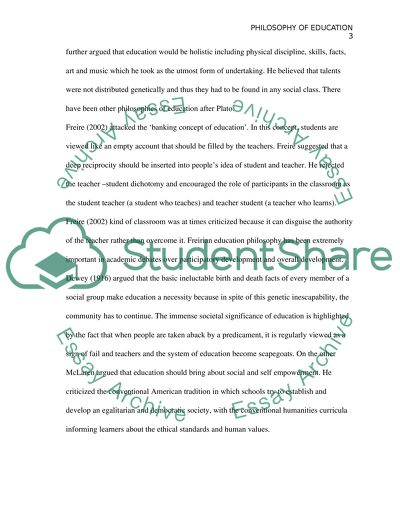Cite this document
(“Philosophy of Education Essay Example | Topics and Well Written Essays - 1750 words”, n.d.)
Philosophy of Education Essay Example | Topics and Well Written Essays - 1750 words. Retrieved from https://studentshare.org/education/1438484-philosophy-of-education
Philosophy of Education Essay Example | Topics and Well Written Essays - 1750 words. Retrieved from https://studentshare.org/education/1438484-philosophy-of-education
(Philosophy of Education Essay Example | Topics and Well Written Essays - 1750 Words)
Philosophy of Education Essay Example | Topics and Well Written Essays - 1750 Words. https://studentshare.org/education/1438484-philosophy-of-education.
Philosophy of Education Essay Example | Topics and Well Written Essays - 1750 Words. https://studentshare.org/education/1438484-philosophy-of-education.
“Philosophy of Education Essay Example | Topics and Well Written Essays - 1750 Words”, n.d. https://studentshare.org/education/1438484-philosophy-of-education.


